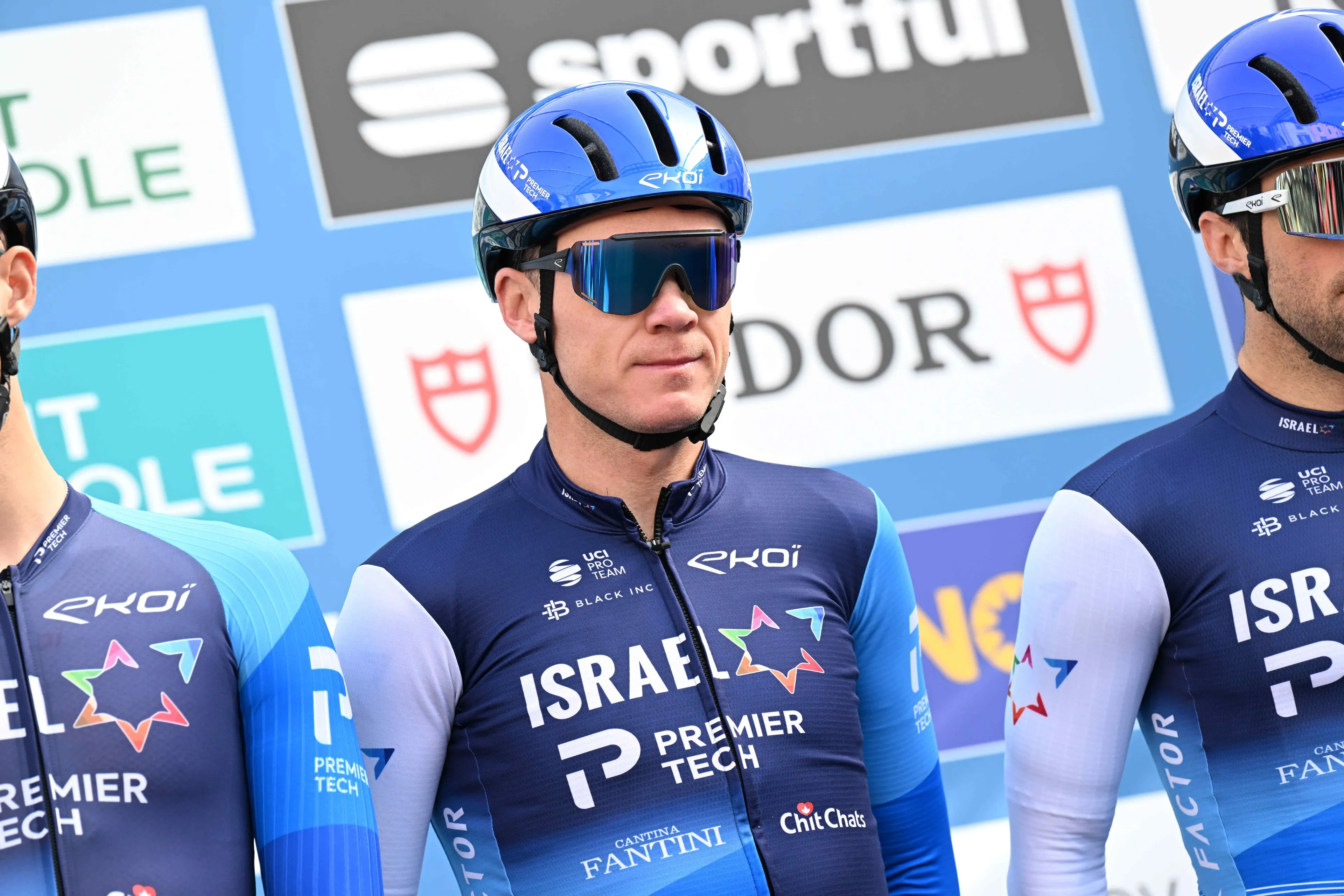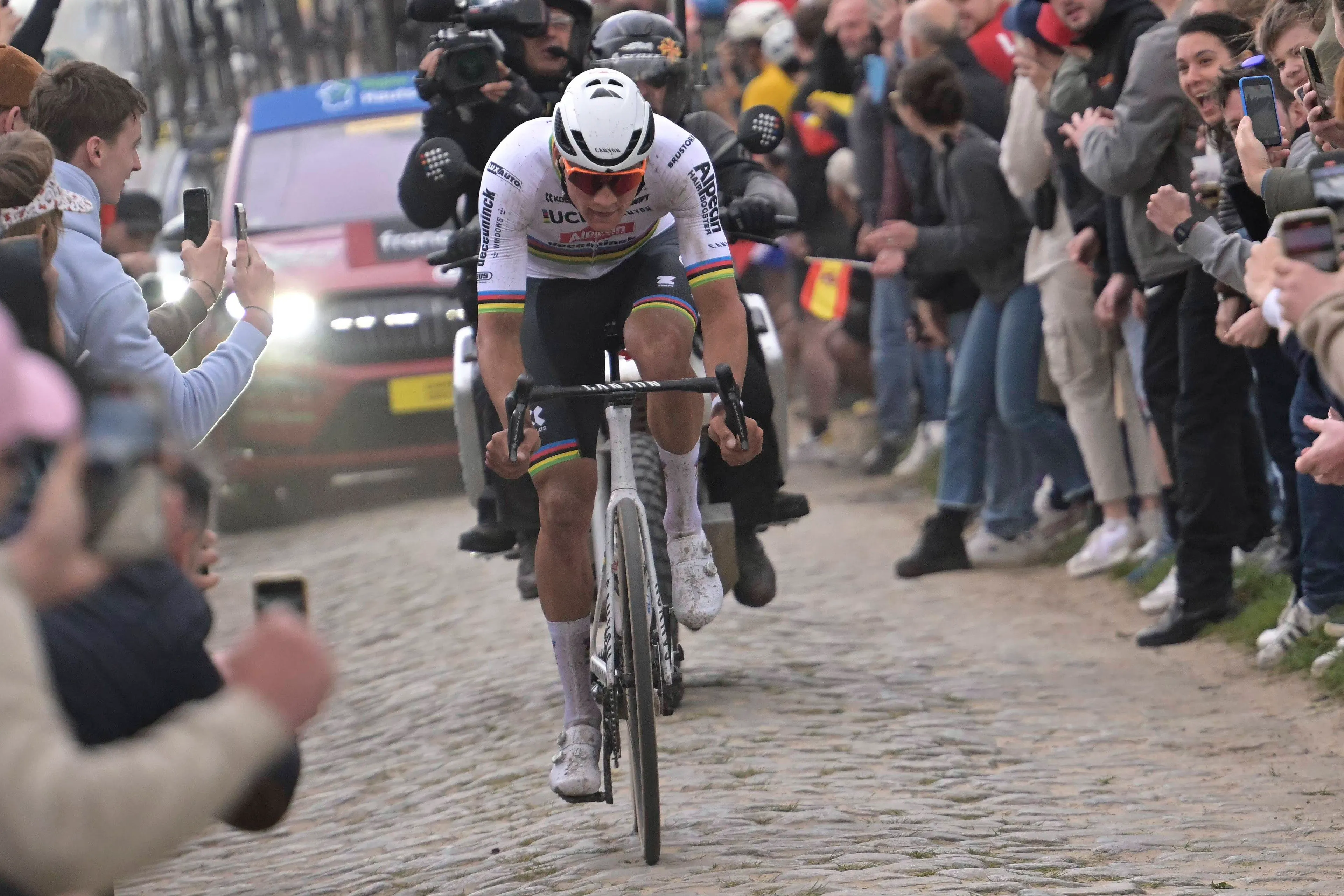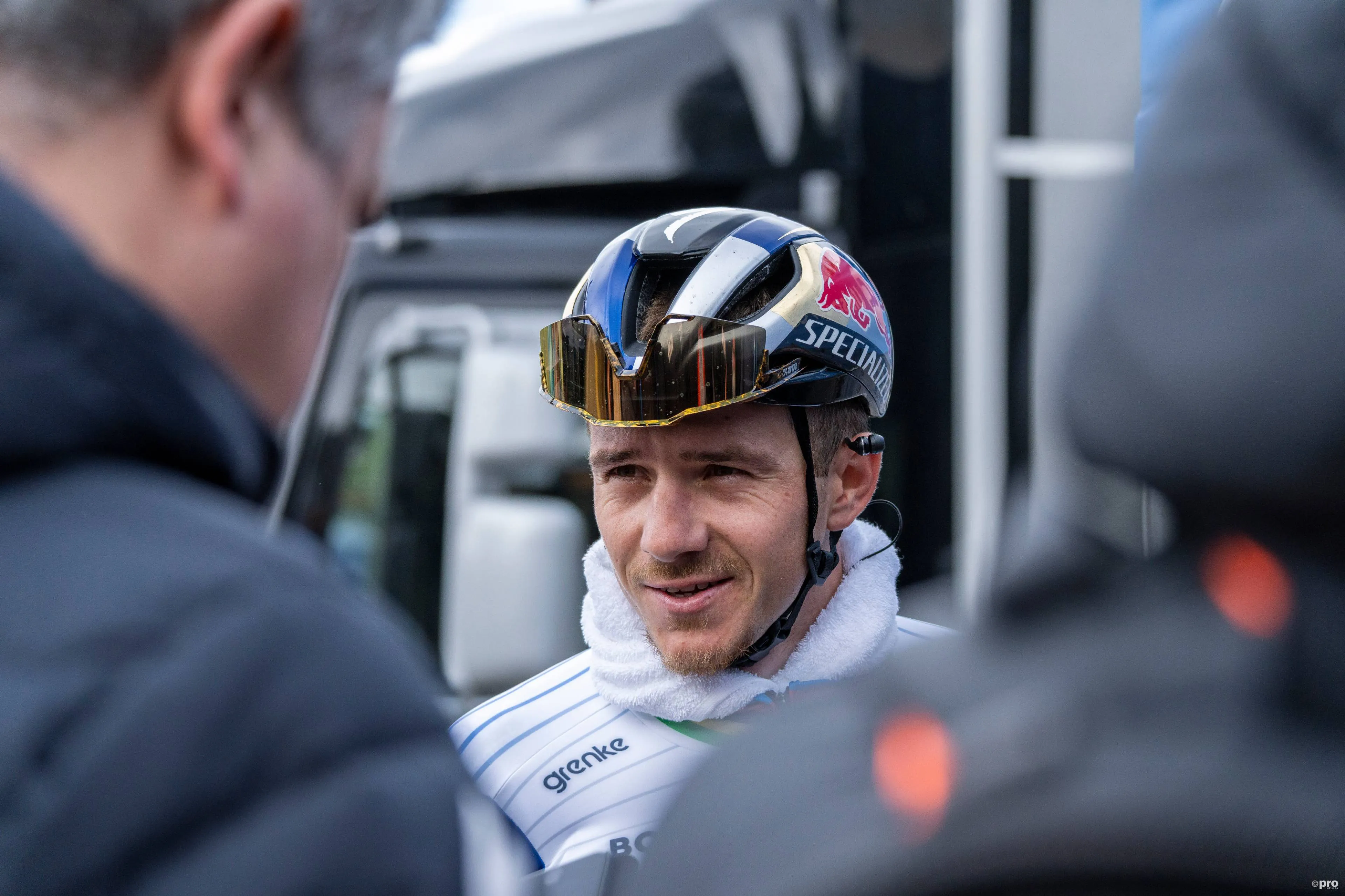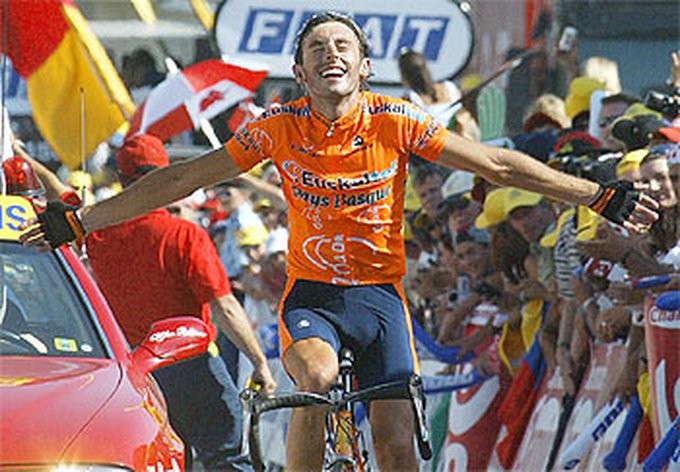"We have to change the image but Matxin, Gianetti or Eusebio are still there" - Iban Mayo's tough statement on the state of Spanish cycling
CyclingSaturday, 13 April 2024 at 13:00
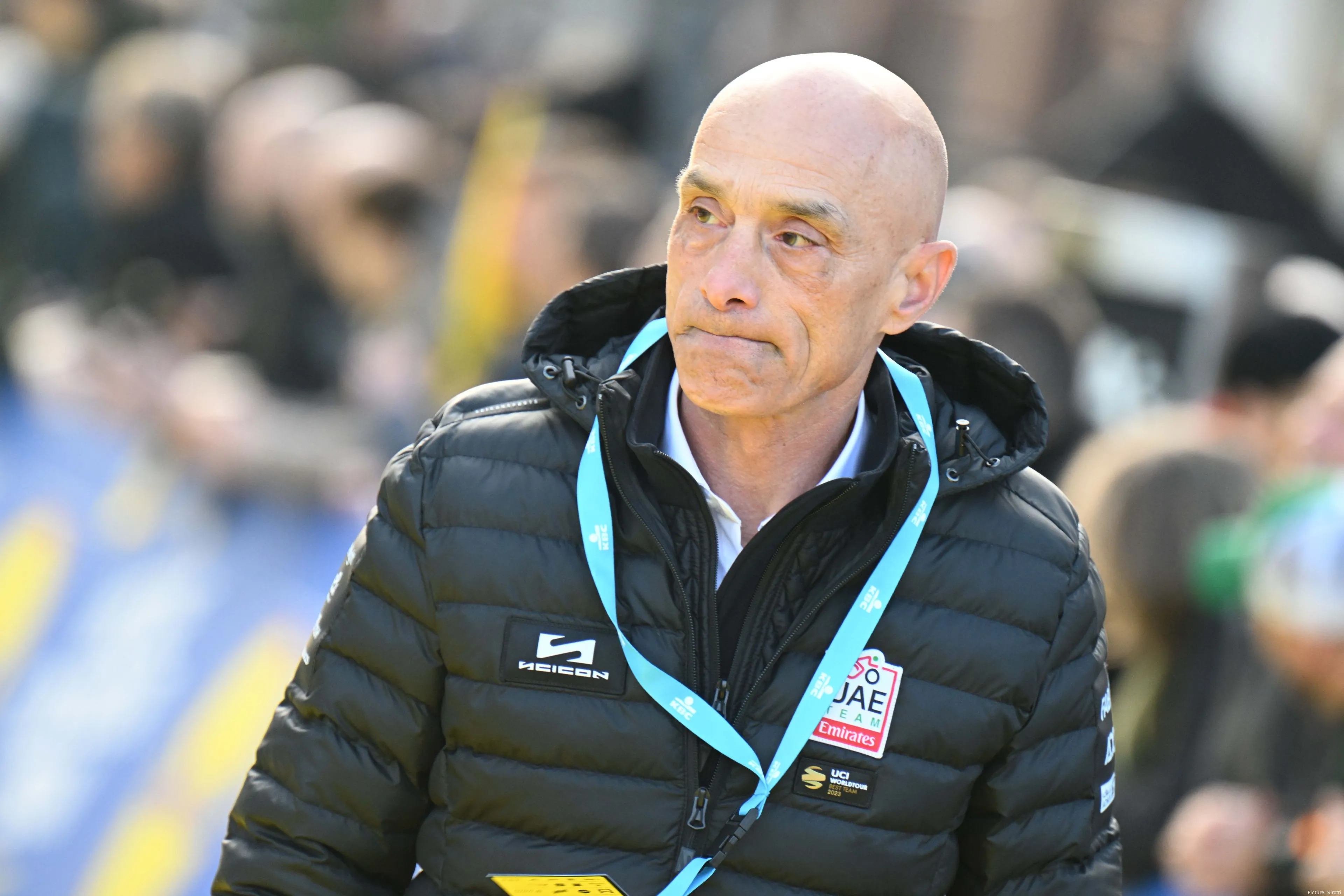
Iban Mayo, one of the best Spanish climbers of his generation, spoke to Jot Down in an extensive interview where he discussed various topics, such as doping. Without accusing directly, he is surprised that his era is criticized with respect to the current one when leaders like Joxeán Fernández Matxín or Mauro Gianetti at UAE Team Emirates and Eusebio Unzué at Movistar Team, who come from a dark era of cycling.
In his time as a rider, the Basque rider broke through in 2001 when he won a stage of the Critérium du Dauphiné and experienced great moments in the Tour de France with Lance Armstrong. In 2002 he finished fifth overall in the Vuelta a España, and 2003 was the best year of his career. He won the Itzulia, taking a stage, added two more stage victories in the Critérium du Dauphiné and finished sixth in the Tour de France, winning on the Alpe d'Huez.
In 2004 he finally won the Critérium du Dauphiné, his best race, taking two stages, plus another in the 2006 edition, for a total of six. In 2007, before testing positive for EPO and retiring from professional cycling, he won a stage in the Giro d'Italia.
Read also
In the interview with Jot Down, he spoke about the positive for EPO in the 2007 Tour de France, the hardest moment for him: "Well, I got the information that I had tested positive in the Tour and then Matxin called me to tell me, that it was already in all the media. I don't know why some journalist didn't call me before. I don't know, I don't remember. The fact is that I asked for the counter-analysis. And it is curious, because it is negative. Then the UCI decided that they were going to do a third analysis, which has never been done".
He denounced the teams that had riders who tested positive for doping, because they got out of the way and didn't want to know anything about it when most of them were involved: "That's what all the teams said. All the riders who tested positive were told the same thing. That the team had nothing to do with it, that it was not involved and that the rider was suspended from work and pay. That happened with that team and with several others. It happened the following year with Vinokourov, in Gerolsteiner as well and in other teams that it has happened, they have made the same statement".
Although he commented that there were exceptions in Spanish cycling with Alberto Contador and Alejandro Valverde: "There you are alone and it has happened in all cases. There have been two rare cases, like Valverde, in which the team continued to support him while he was suspended; they continued to pay him and then he returned to racing. And Contador too, the team continued to support him. But the rest have been the same, expelled from the team in all cases. In the end, it's unfair, but cycling is unfair, yes."
Read also
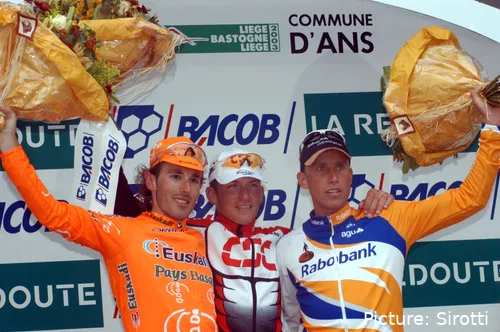
Iban Mayo finished second in the 2003 Liège-Bastogne-Liège
He also commented that when someone tested positive, the same colleagues automatically kept quiet about it: "In the end there is not much talk. If it's your turn, it's your turn, and as long as it's not you, everyone looks the other way. I don't know about now, but before there was no union among the brokers and that was the problem. They have always been able to do with us what they wanted, because there has not been a union to confront us and say this is so and so. Then these things happened. I don't know if it has changed now, because I'm not that involved, but it used to be like that. Everybody looked on the side, nobody did anything for the other. Yes, they could tell you how you were doing or whatever, but nobody would show their face, nobody would do anything. That's how it was, that's all there was to it.
Iban Mayo explained how his doping case went: "I think the counter-analysis was negative. It is negative and they remove my sanction. But the surprise is that the UCI asks for a third analysis. Of course, in a bottle there are some marks for the two analyses and you measure up to that. What happens? The bottle is already open. So, it can't be, that sample can be manipulated. You pee up to the red mark and from there two samples are taken, A and B. They took a third sample from the already opened bottle. And who's to tell me that it hasn't been tampered with? It was like that. There is no logic to it.
Read also
He commented that perhaps there was a plot against Spanish cyclists: "Yes, later came the case of Valverde, maybe. Basso had been sanctioned, other riders had been sanctioned and they said, Italians have fallen here, but they don't fall in Spain".
Finally, he clarified that the team managers of the time when doping exploded are still active today: "What was always said was that the image had to be changed, that riders had to be changed. But then the people are still there. If the same teams and the same people are still there, the same director, the same manager... What happens, that they don't have to be changed? Matxin is still there, or Mauro Gianetti, who is still with the team. Or Eusebio at Movistar. Look at what happened with Valverde. If the same people are still there as twenty years ago, and other things have happened, what conclusion can we draw?"
Read also
claps 4visitors 4
Just in
Popular news
Latest comments
- You need to get out moreJezla18-02-2026
- Ego and self regard are at the center of most human folly.TheOlderIGetTheFasterIWas18-02-2026
- You can't win 'em all. These early season races at this level are good because it shows where you are weak and need work.awp18-02-2026
- This is what I wrote 12-02-2026 10:00: "As far as I'm convinced, Remco still has "zero" wins. I invite Remco to stop in Siena to meet his Slovenian master, Pogi the G.O.A.T... but no, it's better to run away and hide. His fans will somehow defend and glorify him. Let me repeat, he still has zero wins in 2026. If someone doesn't have a high enough IQ to understand what I'm talking about, it's because they don't recognize the low ranking F category races. If Remco will beat Del Toro and Adam Yates in the UAE Tour, then I will consider this to be his first win in 2026. Ad acta." PS: Remco still has zero wins. His second and third class races don't count. The first real race comes along and Mustafa Remco fails.Mou-Cro-HR18-02-2026
- This is what I wrote 12-02-2026 10:00: "As far as I'm convinced, Remco still has "zero" wins. I invite Remco to stop in Siena to meet his Slovenian master, Pogi the G.O.A.T... but no, it's better to run away and hide. His fans will somehow defend and glorify him. Let me repeat, he still has zero wins in 2026. If someone doesn't have a high enough IQ to understand what I'm talking about, it's because they don't recognize the low ranking F category races. If Remco will beat Del Toro and Adam Yates in the UAE Tour, then I will consider this to be his first win in 2026. Ad acta." PS: Remco still has zero wins. His second and third class races don't count. The first real race comes along and Mustafa fails.Mou-Cro-HR18-02-2026
- OK, let's stop with the BS. Remco Mustafa didn't have any cramps, 100%. The only truth is, Remco is not the great cyclist that the Belgians and his fans want us to think. Ad acta!!!... Once in the fall of 2025 I said that Remco's chances of following Pogi are equal to my chances, there is no difference. The only difference is that I'm in front of a TV and Mustafa is acting and making excuses live in front of an audience of millions. Ayuso and Remco are the biggest liars in the peleton.Mou-Cro-HR18-02-2026
- I just hope that he just says that he got cramps and that's it, rather than some long-winded excuse which makes him seem even more of a piece of...
 Rafionain-Glas18-02-2026
Rafionain-Glas18-02-2026 - finally, a team that does something smart. I could never understand why Ineos would like Egan train as he did alone. put a motorbike behind him with an earpiece to call out issues above. same with remco crashing into a postal truck.mij18-02-2026
- Wow, that is not a good sign for Remco. Great win for Tiberi!Pedalmasher18-02-2026
- Great champion Remco but his profile is more suitable for Ardennes-like races and tour with no very hard climbs. Not only Tadej and Vingegaard, there are a lot of younger cyclists (del Toro, Ayuso, maybe Seixas, Nordhagen and others) that will soon be big GC boys.
 maria2024202418-02-2026
maria2024202418-02-2026
Loading
13-07-2003: Iban Mayo 13-07-2023: Ion Izagirre 20 años después el ciclismo vasco sigue reinando en la carrera ciclista más importante del mundo. Harrotasuna. #TDF2023
1 Comments

